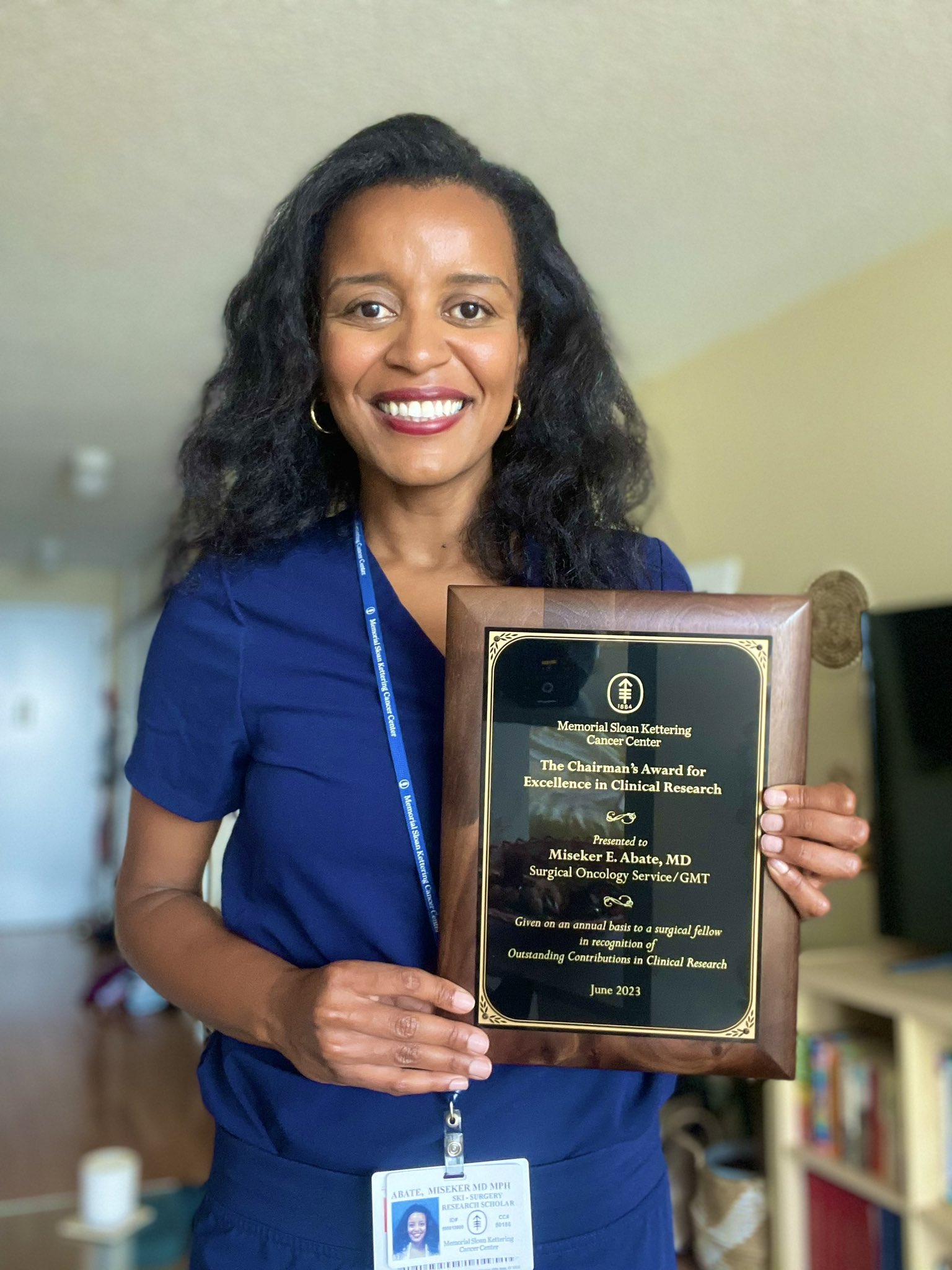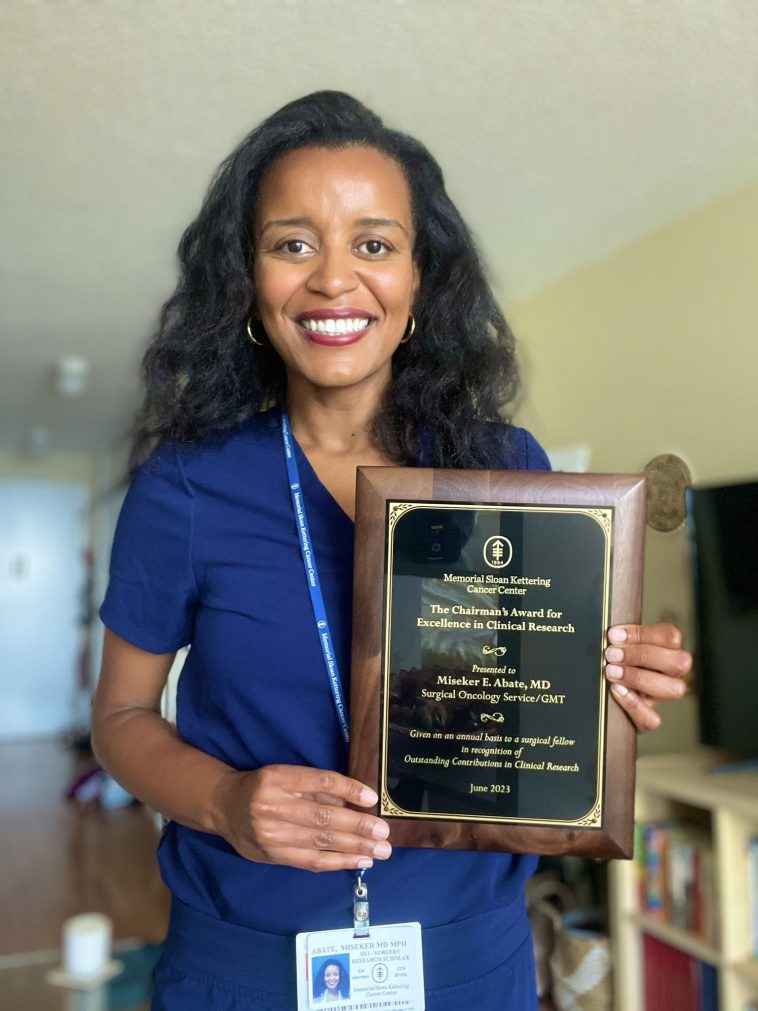
A New Era in Cancer Research and Digital Patient Experience
At a time when advances in technology and medical science are transforming our understanding of health care, it is both inspiring and necessary to reflect on how innovation has paved the way for breakthrough discoveries in cancer treatment. Memorial Sloan Kettering Cancer Center (MSK) stands at the forefront of this transformation, not only through its pioneering research but also by leveraging modern digital tools that tailor patient and visitor experiences online.
Today’s discussion centers on the recent awarding of the 2025 Paul Marks Prize for Cancer Research and how this achievement demonstrates the power of a collaborative, multidisciplinary approach. The prize—named in honor of former MSK president Paul Marks—highlights the success of early and midcareer investigators making lasting contributions in the field of cancer research.
The Importance of Personalized Digital Experiences in Health Care
Before we dive in to the scientific achievements that drive cancer treatment forward, it is worth taking a closer look at the role digital infrastructure plays in modern health care. Websites often employ cookies to provide a smooth, customized user experience. These small data files are designed to remember your site preferences, such as language settings or previously viewed pages, and are essential for many of the intricate aspects of navigating the digital world.
In our digital era, when every visit to a health care website is powered by cookies and personalized features, we see that the web-based patient interface is more than a simple information portal—it is a critical component of overall patient care. From securely logging in to steering through appointment scheduling to finding the right educational materials, the digital experience is as vital as the human connection that underpins every medical consultation. This thoughtful integration of technology not only supports the health system’s administrative side but also ensures that patients feel recognized and valued during challenging times.
Digital Tools That Enhance Patient Engagement
Modern websites use performance cookies that collect information about which pages are visited most frequently and how visitors interact with the system. This information helps administrators detect any tangled issues with the website’s design, ensuring that patients never feel overwhelmed when trying to find the right information. Personalized features further empower users by remembering their preferences, such as language choice or special interests in the type of content they receive.
For patients, doctors, and caregivers alike, these digital tools provide a smoother, more intuitive canyons into the vast world of cancer research, diagnosis, and treatment. They streamline the process of accessing critical care information and allow for seamless navigation through sprawling educational and clinical materials.
Celebrating Breakthroughs: The 2025 Paul Marks Prize for Cancer Research
The 2025 Paul Marks Prize for Cancer Research is more than a cash award or a moment of celebration—it symbolizes a recognition of tireless efforts in understanding the small distinctions and hidden complexities of cancer biology. This year’s winners are none other than Omar Abdel-Wahab, MD, from MSK; Andrea Ablasser, MD, of the Swiss Federal Institute of Technology Lausanne (EPFL); and Christina Curtis, PhD, MSc, from Stanford Medicine. Their groundbreaking work is paving the way for new therapeutic strategies and a deeper comprehension of tumor behavior.
Dr. Omar Abdel-Wahab, a leader on the Leukemia Service at MSK, seamlessly combines clinical practice with research aimed at untangling the twisted bits of blood cancer. His investigations into the role of genes involved in RNA splicing reveal how even tiny malfunctions within cells can set off a domino effect, leading to the nasty development of defective proteins that drive malignancy. His research has already led to novel therapies for the treatment of hematologic cancers and even opened the door to new immunotherapy approaches.
Andrea Ablasser’s work has recalibrated our appreciation for the immune system. As a full professor at EPFL, her exploration of the cGAS-STING pathway has brought to light how the body differentiates between its own cells and those that might be harmful invaders. By identifying critical molecules like cGAMP and later discovering inhibitors of STING, Dr. Ablasser has laid the groundwork for drug classes that promise to revolutionize treatment—not only for cancer but also for a range of autoimmune and inflammatory diseases.
Meanwhile, Christina Curtis stands out by combining computational biology with clinical observations to create a new perspective on tumor evolution. Known for her “Big Bang” model of tumor growth, Dr. Curtis has helped the scientific community understand the subtle parts of tumorigenesis. Her work, which defines critical markers for metastatic colorectal cancer and distinct breast cancer subgroups, consistently challenges traditional views and opens up pathways for targeted, personalized treatment strategies that consider each patient’s unique biological landscape.
The Role of the Paul Marks Prize in Advancing Cancer Treatment Research
This prestigious award, which has honored 40 investigators since its inception, is not just about recognizing scientific excellence. It is a call to the research community to continue searching for answers amid the tricky parts and tangles that make cancer research both challenging and full of promise. The prize highlights the importance of unraveling the fine points of how cancer works, and it inspires current and future investigators to push the frontiers of knowledge ever further.
Through summits and symposiums where awardees present their work, the prize increases awareness and fosters collaboration between research institutions worldwide. The annual symposium at MSK is now a critical gathering that not only celebrates past achievements but also sets the stage for future scientific discussions designed to dig into the underlying causes of cancer and refine therapeutic approaches.
Examining the Impact: How One Research Prize Sends Ripples Through Public Health Policy
One of the most significant aspects of this recognition is its impact beyond the laboratory. When award-winning research is celebrated publicly, it prompts policymakers to get into the conversation about the allocation of resources for both basic and translational research. Public policy is not created in isolation—it is inextricably linked to the achievements of researchers who have shown that even the most intimidating scientific puzzles can be solved with perseverance and innovation.
In this context, several key points come to light:
- Boosting Collaborative Research: The prize underscores the need for interdisciplinary work by facilitating partnerships between laboratory scientists and clinicians.
- Informing Funding Decisions: Recognition through awards can sway state and federal policies regarding resource allocation for cancer research and treatment.
- Public-Private Partnerships: By showcasing trailblazing projects, the prize encourages collaborations between academic institutions and the biopharmaceutical industry, leading to accelerated drug development and innovation.
- Enhancing Patient-Centric Strategies: When scientists succeed in clarifying the small distinctions in tumor evolution, the insights gained help shape more patient-specific therapeutic protocols.
Each of these aspects is super important because they inform not only how research is conducted but also how health care systems integrate breakthrough treatments into patient care frameworks. By celebrating these achievements, MSK and its partners are inspiring a generation of researchers and clinicians to continue working through the tangled issues that have long challenged the cancer research community.
The Convergence of Digital Innovation and Medical Excellence
Another exciting development in today’s health care ecosystem is the interface between digital innovation and patient care. The same precision that is applied in the laboratory is now used to personalize digital experiences. Sophisticated data analytics ensure that healthcare websites are user-friendly and efficient, ensuring that every visitor—whether a current patient, a potential patient, or a researcher—can easily figure a path to the information they need.
Modern digital tools help streamline audit trails, secure patient data, and manage appointment scheduling, thereby reducing any overwhelming or off-putting obstacles that might stand in the way of accessing help. By using performance cookies, personalization features, and robust data security measures, websites like MSK’s not only protect sensitive data but also enhance the overall experience for every user.
This digital transformation also mirrors the breakthroughs in clinical care. Just as digital strategies tackle the subtle parts of online engagement, cutting-edge research at MSK and partner institutions tackles the small distinctions and tricky parts of cancer biology. The parallel progress in both fields is a testament to the comprehensive approach needed to fight complex diseases like cancer.
Enhancing User Experience: The Role of Cookies and Personalization
Cookies and personalization are not just buzzwords; they are practical tools that transform the way patients interact with health care systems. Here are some refined insights into how and why these elements matter:
- Streamlined Communication: With personalized cookies, visitors can return to a site that “remembers” their interests and preferences, reducing the need to repeatedly input the same details.
- Improved Accessibility: Dedicated performance cookies help ensure that pages load quickly and without glitches, so that users do not get frustrated by confusing bits of web design.
- Enhanced Data Security: Strictly necessary cookies serve as the backbone of any health care website, safeguarding information and ensuring that crucial functions—such as patient login—work seamlessly.
- Tailored Content Delivery: Personalization cookies allow a website to provide content catered specifically to the visitor’s needs, making the digital journey as intuitive as possible.
Through ongoing analysis and refinement, technology teams can sort out the delicate balance between privacy concerns and personalized service. In today’s digital health care space, this balance is key to ensuring that every visitor has a productive experience that feels both secure and supportive.
Bridging the Gap: Translating Research Breakthroughs into Clinical Practice
The journey from a laboratory discovery to a treatment that benefits patients is long and strewn with twists and turns. However, when research—like that done by the winners of the Paul Marks Prize—is successfully translated into clinical application, the outcome is transformative. The work of researchers such as Dr. Abdel-Wahab, Dr. Ablasser, and Dr. Curtis is not confined to academic journals; it actively informs how clinicians approach cancer treatment on a daily basis.
There are several layers to this process:
- Basic Science Meets Clinical Application: Research into the fine points of gene function and immune signaling paves the way for new drug discovery and treatment protocols.
- Interdisciplinary Collaboration: The integration of computational biology, molecular pharmacology, and clinical insights often leads to innovative treatment strategies that are both personalized and effective.
- Patient-Centered Outcomes: Ultimately, each scientific breakthrough is aimed at improving patient outcomes, reducing treatment side effects, and increasing survival rates.
When we take a closer look at how these layers interact, we find that the overall process is much like the careful management of a highly personalized website. Every component—from the backend performance cookies to the tailored content—represents a commitment to enhancing quality and reliability. In much the same way, every discovery in cancer research is a step toward better, more effective patient care.
The Role of Translational Research in Bridging Gaps
Translational research is key to transforming laboratory findings into concrete clinical applications. This field is all about figuring a path between the bench and the bedside. For instance, Dr. Abdel-Wahab’s studies on RNA splicing mutations in blood cancers have already resulted in new drugs that are changing the way physicians treat leukemia and other hematologic disorders.
Similarly, the work of Dr. Ablasser on the cGAS-STING pathway has expanded our understanding of the immune system’s role in cancer, fostering new approaches in immunotherapy that tackle the subtle differences within tumor environments. Meanwhile, Dr. Curtis’s computational models help clinicians optimize treatment based on each patient’s unique profile, thereby making treatment more targeted and informed.
This concerted effort to translate basic research into practice also informs policy. When researchers show that a new treatment strategy significantly improves patient outcomes, it galvanizes support from both state and federal entities to invest in further innovation. In this way, breakthroughs in cancer research continuously shape and refine public health policies, ensuring that the latest treatments become accessible to those in need.
Fostering a Culture of Interdisciplinary Collaboration in Cancer Research
The achievements recognized by the Paul Marks Prize highlight the importance of collaboration across different disciplines and institutions. When experts from diverse fields—ranging from molecular biology and computational science to clinical medicine and digital technology—unite in a single goal, the results are nothing short of remarkable.
Interdisciplinary collaboration is crucial because it allows for a broader, more comprehensive approach to the intricate challenges of cancer care. While the basic science may unravel the tangled issues within cancer cells, the clinical environment demands innovative approaches to treatment and supportive care.
How Collaborative Efforts Lead to Groundbreaking Discoveries
Let’s take a closer look at some reasons why teamwork is so essential in advancing cancer research:
- Diverse Perspectives: By merging insights from different disciplines, researchers can spot subtle details and hidden complexities that might be overlooked in a more siloed environment.
- Shared Resources: Collaborations allow for the exchange of advanced technologies, methodologies, and data, which significantly reduce the intimidating challenges of individual research projects.
- Accelerated Innovation: When experts work side-by-side, the process of experimentation and discovery is often faster and more efficient, thereby speeding up the translation of research into clinical benefits.
- Enhanced Funding Opportunities: Interdisciplinary initiatives often attract broader support from funding agencies, which are keen to invest in research that promises tangible, patient-centered outcomes.
These collaborations are not only the driving force behind many clinical advancements—they also nurture the next generation of scientists and clinicians. Educational programs at institutions such as MSK and partner universities continually reshape curricula to incorporate real-world challenges and case studies, ensuring that future professionals are well-equipped to work through the confusing bits and nerve-racking hurdles of modern cancer research.
The Future of Cancer Research: Opportunities and Challenges
Looking forward, the future of cancer research is laden with opportunities—even though it remains full of problems that will require resolve and creativity to overcome. As research advances and digital technologies improve, we can expect to see several trends emerge:
Personalized Medicine: The era of one-size-fits-all treatment is rapidly coming to an end. With tools from artificial intelligence to high-throughput genomic screening, treatments are increasingly tailored to the specific biology of each cancer patient.
Immunotherapy Innovations: The work on the cGAS-STING pathway and other immune signaling mechanisms is spearheading a revolution in how the body’s own defenses are harnessed to fight cancer.
Data-Driven Insights: As hospitals and research centers continue to collect vast quantities of clinical and genomic data, performance cookies and personalized website features in digital platforms serve as a microcosm for how data drives real-world improvements in patient care.
Interdisciplinary Research Hubs: Centers like MSK encourage partnerships between clinicians, researchers, and technologists to tackle the convoluted twists and turns of cancer biology. This framework not only accelerates innovation—it also creates a supportive community where the sharing of ideas is as routine as logging into a personalized website.
Nonetheless, challenges remain. Funding disparities, regulatory hurdles, and the inherent complexity of cancer itself continue to test the resilience of researchers and clinicians alike. But with each new breakthrough comes hope. When we observe pioneering work—such as that awarded to Dr. Abdel-Wahab, Dr. Ablasser, and Dr. Curtis—we see that these intimidating challenges can be overcome by persistence, innovation, and a willingness to get into the nitty-gritty of scientific inquiry.
Striking the Balance Between Innovation and Practicality
The intricate dance between groundbreaking research and practical medical breakthroughs is one that requires both bold vision and a patient, methodical approach. While the scientific community strives to find novel treatments for cancer, the real-world application of these discoveries must consider factors such as cost, accessibility, and patient quality of life.
This balance is reminiscent of managing today’s digital ecosystems. Just as web developers must address both the technical and human sides of site navigation, researchers must consider not only the effectiveness of a new treatment but also its feasibility and acceptability among patients. For example, a treatment promising dramatic results in a laboratory setting might face nerve-racking challenges during clinical trials if it proves too complicated or off-putting for widespread use.
Thus, the future of cancer research depends on our ability to manage your way through both promising breakthroughs and the subtle hurdles that emerge along the way. Success depends on open collaboration, patient engagement, and policies that support sustained investment in science. It is a shared responsibility—one that spans digital innovation, clinical practice, and the ongoing pursuit of scientific excellence.
Implications for Public Policy and Education
The impact of these advances stretches beyond individual hospitals or research institutes and has far-reaching implications for public policy and educational initiatives. When breakthroughs in cancer research are recognized and celebrated, as with the Paul Marks Prize, they can galvanize changes in how public funds are allocated and how educational institutions train future professionals.
For policymakers, the work of current investigators is a reminder of the importance of investing in innovative research that has the potential to save lives. When public policy supports interdisciplinary research and funds training programs that emphasize both theoretical knowledge and practical application, the entire health care system benefits from improved outcomes and enhanced patient care.
In education, these achievements serve as a call to action for academic programs to continually evolve. The integration of digital technology into medical curricula not only familiarizes students with the modern tools of health care management but also equips them with the confidence to work through the confusing bits and subtle parts of advanced research. Programs that focus on both clinical skill-building and data literacy are becoming must-have assets for cultivating compassionate, informed future practitioners.
Policy Initiatives to Support Future Innovations
To foster an environment where research and education can flourish, the following policy initiatives deserve close attention:
- Increased Funding for Translational Research: Support for projects that bridge the gap between laboratory findings and clinical practice is essential for ensuring that breakthroughs reach the patient bedside.
- Enhanced Support for Interdisciplinary Programs: Educational initiatives that promote collaboration between different fields can help cultivate a workforce ready to tackle the off-putting challenges of modern medicine.
- Robust Data Security Regulations: As digital tools become more integral to health care, establishing clear guidelines that protect patient data without stifling innovation is key to maintaining public trust.
- Encouraging Public-Private Partnerships: By forging closer ties between academic research and industry, policymakers can help streamline the path from discovery to clinical application, ensuring that promising therapies are expedited for public use.
Such initiatives are critical for maintaining the dynamic ecosystem necessary for sustained innovation. They not only ensure that the work of exciting investigators continues to thrive but also foster an environment where continuous progress is celebrated and shared across sectors, benefiting society as a whole.
Concluding Thoughts: Embracing the Journey Forward
In the ever-evolving landscape of cancer research and digital health care, every innovative step forward is a reason for both celebration and reflection. The work recognized by the 2025 Paul Marks Prize for Cancer Research is a reminder that even the most intimidating and convoluted challenges can be tackled when brilliant minds work together—across disciplines and borders—to find new ways of understanding and treating cancer.
Just as personalized digital interfaces improve our online experiences by addressing confusing bits and complex pieces of user interaction, research breakthroughs enhance our understanding of cancer by unraveling the tangled issues within the disease. Both domains require collaboration, persistence, and a willingness to take a closer look at what lies beneath the surface.
As we move forward, it is essential to celebrate these achievements while also recognizing that there is still much work to be done. Whether it is by investing in advanced digital tools that ensure a patient-friendly online experience, or by supporting interdisciplinary research that bridges the gap between the laboratory and clinical practice, every effort contributes to a healthier future.
In a world where each small discovery can have a super important impact on countless lives, we must continue to support initiatives that drive innovation, enhance personalized care, and ultimately, improve patient outcomes. The legacy of leaders like Dr. Paul Marks, and the remarkable work of investigators honored with his namesake prize, are powerful reminders that progress in cancer research is not just about solving scientific puzzles—it is about saving lives.
Ultimately, the journey ahead is a collaborative one. It requires state and federal policymakers, academic institutions, private industry, and the dedicated professionals in our health care systems to work together, figure a path through the overwhelming challenges, and build a future where cancer is not a dreaded diagnosis but a treatable condition.
As we embrace this new era, let us remember that every step—no matter how small—brings us closer to a world where personalized cancer care is the norm, digital platforms serve as trusted guides, and every patient is given the opportunity to receive the best possible treatment. By supporting and celebrating the innovative work of today’s leaders, we lay the foundation for a brighter, healthier tomorrow.
In conclusion, it is the combination of breakthrough research, thoughtful digital innovation, and supportive public policy that will define the future of cancer care. Let us continue to champion these efforts, celebrating each achievement while remaining ever mindful of the responsibility we share in transforming cancer from a life-altering diagnosis to a manageable condition. The road ahead may be full of problems and challenging twists and turns, but with collective determination, we are well on our way to a future where no single patient faces this journey alone.
Originally Post From https://www.mskcc.org/news-releases/three-investigators-named-winners-of-mskccs-2025-paul-marks-prize-for-cancer-research
Read more about this topic at
2025 Winners
CRI Announces 2025 Lloyd J. Old STARs: Five Bold …


